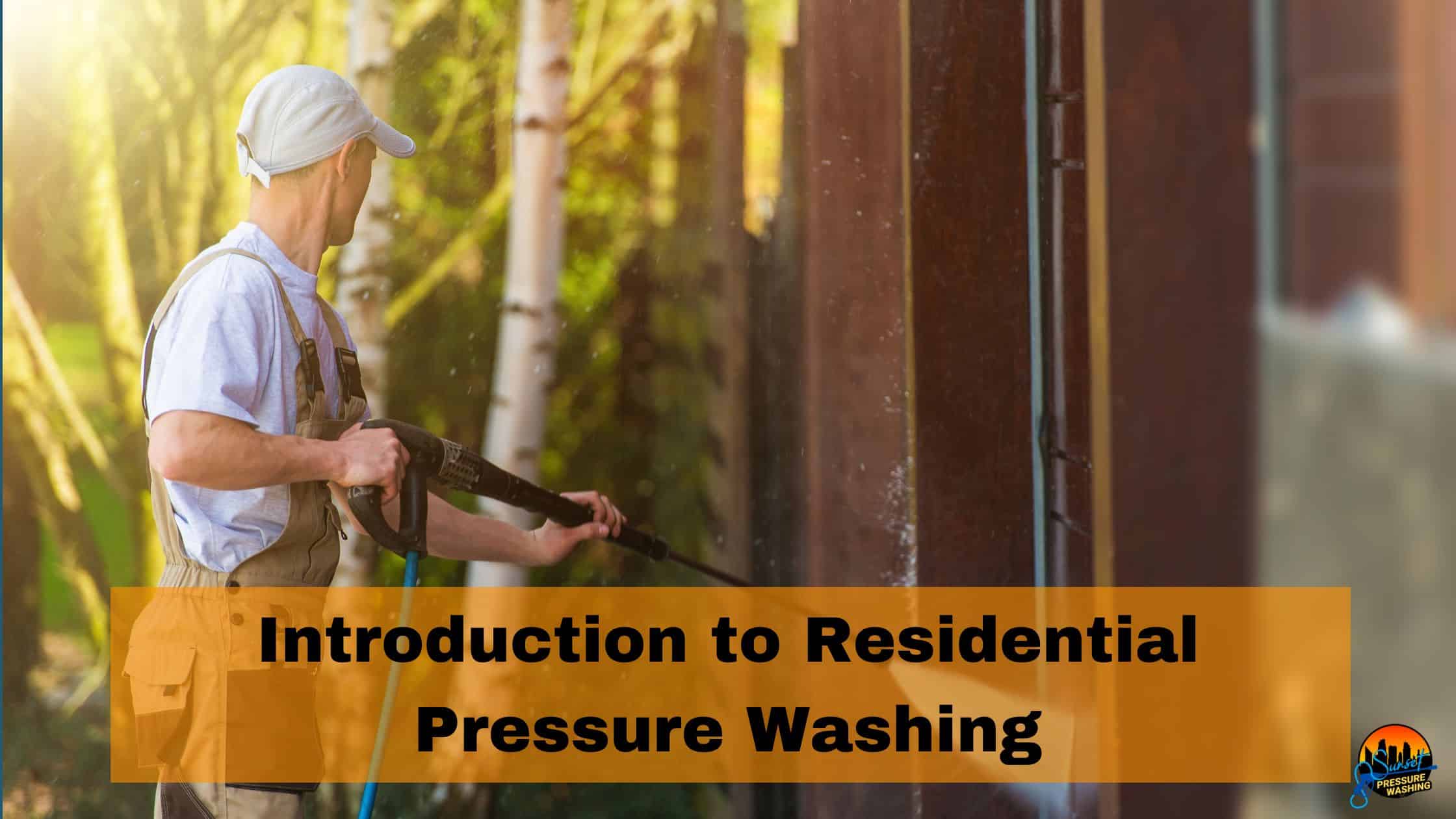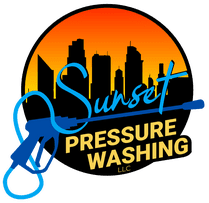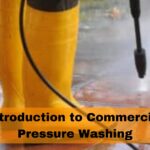
Introduction to Residential Pressure Washing
Dive into the dynamic and essential world of residential pressure washing, a crucial practice for the care and enhancement of your home’s exterior. This blog serves as an introductory guide, unveiling the core principles of pressure washing—a potent technique for effectively eradicating dirt, grime, and various unsightly residues from outdoor surfaces. If your goal is to amplify your home’s curb appeal, raise its market value, or foster a healthier living environment, pressure washing emerges as a practical and gratifying strategy.
In the following sections, we will explore the many facets of residential pressure washing, touching on its foundational aspects, advantages, safety measures, and the equipment involved. We’ll provide insights into DIY approaches and indicate when it’s best to call in the professionals, culminating in an introduction to Sunset Pressure Washing, a distinguished service in this domain. Whether you’re a hands-on DIYer or new to the concept of pressure washing, this blog promises to arm you with the knowledge needed to revitalize your home’s exterior with confidence.
What is Pressure Washing?
Pressure washing, sometimes known as power washing, involves using high-pressure water spray to remove dirt, mold, grime, and other build-ups from various surfaces such as building exteriors, driveways, and decks. The effectiveness of pressure washing comes from the combination of high water pressure and volume, enabling deep cleaning without the need for harsh chemicals.
Essentially, a pressure washer includes a motor-powered high-pressure water pump, a hose, and a trigger-operated gun. The power of these machines is measured in PSI (pounds per square inch) for pressure, and GPM (gallons per minute) for the flow of water. Residential models typically range from 1,200 to 2,800 PSI, suitable for most home cleaning tasks.
While both pressure washing and power washing use high-pressure water, power washing often involves heated water for more intense cleaning. For most residential purposes, however, standard pressure washing with cold water suffices, offering an efficient and eco-friendly way to maintain and clean exterior surfaces. Power washing in Charleston SC, Greenville SC, Spartanburg SC, and other parts of South and North Carolina is a reliable solution for maintaining the cleanliness and appeal of properties across the region.
7 Benefits of Pressure Washing
Pressure washing offers several key benefits for homeowners, making it a popular choice for residential exterior maintenance:
1. Enhances Curb Appeal
Regular pressure washing can significantly improve the look of your home’s exterior. It removes dirt, stains, and mildew that can make a house look older, less appealing, and poorly maintained. This is especially beneficial if you’re planning to sell your property, as a clean and attractive exterior can make a great first impression on potential buyers.
2. Increases Property Value
Along with enhancing curb appeal, a clean exterior can add value to your home. Pressure washing is a cost-effective way to increase your home’s market value and can be a crucial factor in a competitive real estate market.
3. Prevents Damage
Dirt, grime, and other substances can cause long-term damage to your home if not removed regularly. For instance, mold and mildew can grow on your home’s siding, leading to costly repairs. Pressure washing removes these harmful substances and helps prevent decay and rot.
4. Health Benefits
Pressure washing eliminates allergens like mold and pollen from your home’s exterior, contributing to a healthier living environment. This is particularly beneficial during allergy seasons.
5. Prepares Surfaces
If you’re planning to repaint or refinish your home, pressure washing is an essential first step. It ensures that surfaces are clean and free of debris, providing a better foundation for paint and increasing the longevity of the paint job.
6. Time and Labor Efficient
Compared to traditional cleaning methods, pressure washing is a time-saver. It cleans large areas quickly and efficiently, reducing the amount of labor and time required.
7. Environmentally Friendly
Many pressure washing methods use only water, making it a more environmentally friendly cleaning option. Even when detergents are used, they are often biodegradable and less harmful to the environment than traditional cleaning chemicals.
6 Types of Pressure Washers
Pressure washers come in various types, each suited to different cleaning tasks and user preferences. Understanding the differences between these types can help you choose the right one for your residential cleaning needs:
1. Electric Pressure Washers
- Characteristics: These are lightweight, quiet, and easy to start. Electric pressure washers are ideal for light to medium-duty tasks such as cleaning cars, patio furniture, and small decks.
- Power Range: Typically, they offer a PSI (pounds per square inch) range of 1,300 to 1,700, suitable for delicate surfaces that might be damaged by higher pressure.
2. Gas Pressure Washers
- Characteristics: More powerful and portable than electric models, gas pressure washers are suitable for medium to heavy-duty tasks. They are preferred for cleaning large areas like driveways, siding, and decks.
- Power Range: They generally offer higher PSI ranges, starting from 2,000 to 3,000 or more, enabling them to handle tougher grime and stains.
3. Cold Water Pressure Washers
- Usage: These are the most common types of pressure washers, using cold water from a garden hose. They are suitable for most residential cleaning tasks, such as removing dirt, mud, and mildew.
- Advantages: They are more affordable and easier to maintain than hot water models.
4. Hot Water Pressure Washers
- Usage: These are more specialized and are used for heavy-duty cleaning tasks. Hot water is effective in breaking down oil and grease, making these washers ideal for industrial or agricultural settings.
- Advantages: They clean more efficiently and quickly than cold water pressure washers, but are typically more expensive and complex.
5. Petrol/Diesel Pressure Washers
- Usage: These are high-powered washers primarily used for commercial purposes but can be used in residential settings for extensive cleaning tasks.
- Advantages: They offer high mobility and power, but are louder and require more maintenance.
6. Cordless/Battery-Operated Pressure Washers
- Characteristics: Ideal for light tasks and spot cleaning, these washers offer the convenience of portability and ease of use without the need for a power outlet.
- Power Range: Generally, they are less powerful than their corded counterparts but are sufficient for small, quick cleaning jobs.
10 Safety Considerations in Pressure Washing
Pressure washing, while effective, involves significant force and can be dangerous if not handled correctly. Here are key safety considerations to keep in mind:
1. Read the Manual
Before using a pressure washer, thoroughly read the manufacturer’s manual. Understanding the specifics of your machine is crucial for safe and effective use.
2. Wear Protective Gear
Always wear protective clothing, including safety goggles, gloves, long pants, and sturdy footwear. The high-pressure spray can propel debris and chemicals, so protecting your eyes and skin is essential.
3. Be Aware of Your Surroundings
Check the area for potential hazards like electrical lines, slippery surfaces, and tripping hazards. Ensure that people, especially children and pets, are at a safe distance.
4. Handle the Equipment with Care
Securely connect all hoses and fittings to prevent them from coming loose under pressure.
Never point the pressure washer nozzle at yourself, others, or pets.
5. Start with Lower Pressure
Begin with the lowest pressure setting and gradually increase it as needed. This helps prevent damage to surfaces and allows you to get a feel for the pressure washer’s power.
6. Avoid Ladders
The force of the pressure washer can cause instability, making ladder use risky. If you need to reach high areas, use an extension wand or consider hiring a professional.
7. Use Chemicals Safely
If using detergents or chemicals, ensure they are suitable for pressure washers and the surfaces you’re cleaning. Follow all instructions for safe handling and disposal.
8. Mind Electrical Safety
Keep the pressure washer and its cord away from water sources to avoid electric shock. Use a ground fault circuit interrupter (GFCI) for added protection.
9. Inspect the Washer Before Use
Regularly check your pressure washer for leaks, worn hoses, or damaged connections. Routine maintenance can prevent accidents.
10. Stay Grounded on Wet Surfaces
Wet surfaces can be slippery. Maintain a stable stance and move cautiously to avoid falls.
10 DIY Pressure Washing Tips
Engaging in DIY pressure washing can be highly effective for maintaining your home, but it requires some know-how to ensure efficiency and safety. Here are essential tips for a successful DIY pressure washing experience:
1. Select the Right Equipment
- Choose a pressure washer that fits your cleaning needs. For most home tasks, a unit with 1,300 to 2,400 PSI is sufficient.
- Consider the type of nozzle needed. Different nozzles offer various spray angles and pressure intensities.
2. Prepare the Area
- Clear the area of furniture, toys, and other items.
- Cover plants, lighting fixtures, and electrical outlets to protect them from water damage.
3. Safety First
- Wear protective gear such as goggles, gloves, and non-slip shoes.
- Ensure you have a firm footing and are aware of your surroundings to prevent accidents.
4. Test the Pressure Washer
- Start with a low-pressure setting and test on a small, inconspicuous area.
- Adjust the pressure accordingly to avoid damaging surfaces.
5. Use Proper Techniques
- Maintain a consistent distance and angle with the spray nozzle to ensure even cleaning.
- Overlap strokes to avoid streaking and start from the top of a surface and work downward.
6. Cleaning Solutions
- Use appropriate cleaning solutions for tougher stains and dirt.
- Ensure the cleaning agents are safe for pressure washers and the surfaces being cleaned.
7. Avoid Damage
- Be cautious on softer surfaces like wood decking and siding; too much pressure can cause damage.
- Avoid directing high-pressure water under siding or into electrical fixtures.
8. Know Your Limits
- Recognize when a job is too big or potentially hazardous and consider hiring a professional.
- Avoid using pressure washers on high or hard-to-reach areas without proper safety equipment.
9. Efficient Cleaning
- Work in sections to ensure thorough cleaning and avoid missing spots.
- For large areas, use a surface cleaner attachment to save time and ensure even cleaning.
10. Post-Cleaning Care
- After cleaning, rinse the surfaces with plain water to remove any residual detergent.
- Allow surfaces to dry completely, and replace any items you moved before cleaning.
When to Hire a Professional for Pressure Washing
While DIY pressure washing can be effective for many tasks, there are situations where it’s best to hire a professional. Knowing when to call in the experts can save time, ensure safety, and provide superior results:
1. Large or Complex Projects
- If you’re dealing with a large area or a complex project, like cleaning a multi-story building, professionals can handle it more efficiently and safely.
2. Specialized Cleaning Requirements
- Certain surfaces or stains may require specialized equipment or cleaning agents that professionals can provide.
3. Safety Concerns
- If the job involves working at heights or in potentially dangerous areas (like cleaning roofs or near power lines), it’s safer to hire professionals equipped and trained for these tasks.
4. Lack of Proper Equipment
- Professional pressure washers often have more powerful equipment that can provide a deeper and more uniform clean than standard consumer models.
5. Time Constraints
- If you’re short on time, a professional can complete the job quickly and efficiently.
6. Avoiding Potential Damage
- Incorrect pressure washing techniques can damage siding, shingles, decks, and other surfaces. Professionals have the expertise to clean without causing harm.
7. Environmental Regulations
- In some areas, there are strict regulations about water runoff and chemical use. Professionals are aware of these rules and can ensure compliance.
8. Guaranteed Results
- Many professional pressure washing services offer guarantees on their work, providing peace of mind and accountability.
9. Regular Maintenance
- For ongoing maintenance, professionals can schedule regular cleanings, ensuring your property remains in top condition without you having to remember to do it yourself.
10. Insurance and Liability
- Professionals are typically insured, which protects you from liability in the event of accidents or damage during the cleaning process.
Eco-Friendly Pressure Washing Practices
Adopting eco-friendly practices in pressure washing not only helps in maintaining your property but also contributes to environmental conservation. Here are some key strategies to ensure your pressure washing activities are as green as possible:
Use Biodegradable Cleaning Solutions
- Opt for environmentally friendly detergents that break down quickly and don’t harm plants, animals, or water sources.
- Avoid harsh chemicals like bleach and ammonia, which can cause environmental damage.
Conserve Water
- Choose a pressure washer with a high efficiency rating to minimize water usage. High-efficiency models clean effectively while using less water.
- Be mindful of your water usage while cleaning. Use just enough pressure and volume to get the job done.
Prevent Runoff
- Contain and manage runoff, especially when cleaning areas with grease, oil, or chemicals. Runoff can contaminate local waterways.
- Use barriers or absorbent materials to prevent pollutants from entering storm drains.
Energy Efficiency
- If using an electric pressure washer, opt for one that is energy-efficient to reduce your carbon footprint.
- For gas-powered washers, ensure they are well-maintained for optimal performance and lower emissions.
Proper Disposal of Wastewater
- Follow local guidelines for the disposal of wastewater. Some areas may require you to collect and dispose of it in a specific manner.
- Avoid disposing of wastewater in areas where it can seep into the groundwater.
Regular Maintenance of Equipment
- Keep your pressure washer in good condition. Regular maintenance ensures it operates efficiently and reduces the likelihood of leaks or spills.
Educate Yourself and Others
- Stay informed about the latest eco-friendly cleaning products and techniques.
- Share your knowledge with others to promote environmentally responsible pressure washing practices.
Use Only What You Need
- Use detergents and water judiciously. More is not always better—often, a small amount of the right cleaner does the job effectively.
Recycle Water When Possible
- If feasible, set up a system to collect and reuse water for pressure washing, reducing overall water consumption.
Choose Low-Noise Equipment
- Consider the noise level of the pressure washer, as noise pollution is also an environmental concern.
Pressure Washing Maintenance and Upkeep
Proper maintenance and upkeep of your pressure washer are crucial for its longevity and efficiency. Regularly attending to your equipment ensures that it remains in good working condition and is ready to use when needed. Here are some essential maintenance and upkeep tips for your pressure washer:
Choose Low-Noise Equipment
- Before and after each use, inspect your pressure washer for any signs of wear or damage, especially in hoses, nozzles, and connections.
Hose Care
- Check hoses for cracks, leaks, or bulges. Replace damaged hoses promptly to prevent accidents and ensure efficient operation.
- After use, drain hoses completely and store them away from direct sunlight to prevent deterioration.
Clean and Replace Filters
- Regularly clean or replace the water and fuel filters to prevent clogging and damage to the pump.
- A clean filter also ensures that the water flow is not restricted, maintaining the efficiency of the pressure washer.
Pump Maintenance
- Regularly check the pump oil level and look for any oil leaks.
- Change the pump oil as recommended by the manufacturer to ensure smooth operation.
Nozzle Care
- Clean the nozzles to remove any dirt or debris that could clog them. A clogged nozzle can reduce the efficiency of the pressure washer and potentially cause damage.
- Replace worn or damaged nozzles to maintain the effectiveness of the water spray.
Engine Maintenance (for Gas Models)
- Regularly check the engine oil level and replace the oil according to the manufacturer’s schedule.
- Keep the engine clean and check for any signs of wear or damage.
Winterizing (for Cold Climates)
- If you live in an area with freezing temperatures, it’s important to winterize your pressure washer to prevent damage from freezing water.
- Use antifreeze in the pump and hoses, and store the machine in a frost-free environment.
Proper Storage
- Store your pressure washer in a clean, dry place to prevent rust and corrosion.
- Avoid storing it in places with extreme temperatures or high humidity.
Check Electrical Cords (for Electric Models)
- Regularly inspect the power cord for any damage, such as fraying or cracking, and ensure that the plug is in good condition.
Professional Servicing
- Consider having your pressure washer professionally serviced once a year, especially if it’s used frequently or for commercial purposes.
Why Choose Sunset Pressure Washing?
Residential pressure washing is an invaluable tool for enhancing and maintaining your home’s exterior. For expert care and superior results, Sunset Pressure Washing is a standout choice. Explore the residential pressure washing in Charleston SC, Greenville SC, Spartanburg SC, and other parts of South and North Carolina. For expert care and superior results, Sunset Pressure Washing is a standout choice. Offering a comprehensive range of residential pressure washing services, we prioritize quality, efficiency, and eco-friendly methods.
Sunset Pressure Washing boasts a team of experienced professionals and state-of-the-art equipment, ensuring that every job, from reviving sidings and decks to cleaning driveways and patios, and red clay removal, is handled with utmost care. Our dedication to customer satisfaction and environmental stewardship makes us a reliable and responsible choice for your pressure washing needs.
Discover the transformative impact of professional pressure washing and learn more about the services offered by Sunset Pressure Washing. Entrust us with the task of rejuvenating your home’s appearance and ensuring its longevity. Contact us today to book an appointment!






